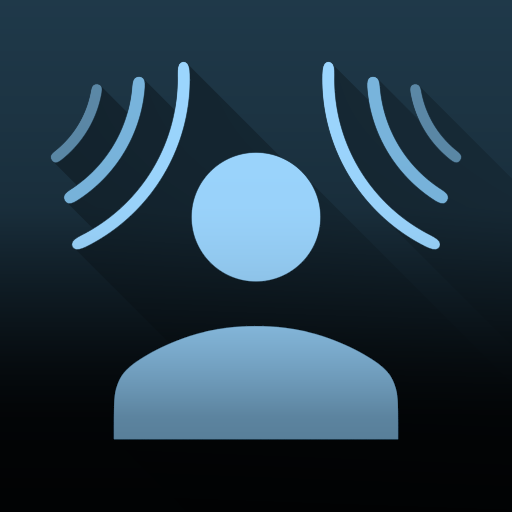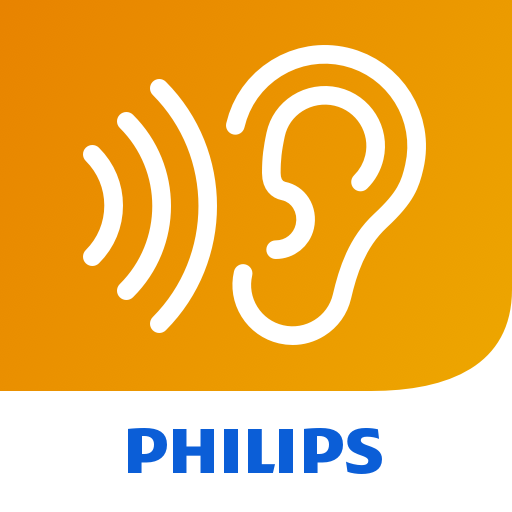
このページには広告が含まれます

SmarterNoise Pro - 騒音アナライザーレコーダー
ツール | Agibili
BlueStacksを使ってPCでプレイ - 5憶以上のユーザーが愛用している高機能Androidゲーミングプラットフォーム
Play SmarterNoise Pro - sound meter analyser recorder on PC
SmarterNoise Pro is the most advanced edition of the SmarterNoise sound meter recorders. Our Pro edition is developed especially with more advanced measurements in mind, and includes many requested features such as a frequency spectrum display, export of measurement data, A-, C- or no weighting, and full screen audio measurement. Our Pro edition does not contain any advertising, and performs accurately and fast.
Features of SmarterNoise Pro - sound meter analyser recorder:
Sound level measurement in video mode
Sound level measurement in audio mode
Sound meter snapshot camera
Record video and audio files
Limit recording length
Frequency spectrum display
Peak frequency detection
A-, C- or no weighting
Export of measurement data in CSV format
HD and VGA video resolution
Three video quality settings
Archive for saved files
Sharing of saved files
Calibration
Location, address
Time and date
Continuous Leq, LAeq, LCeq value
10 second sound level average (Leq, LAeq, LCeq)
60 second sound level average (Leq, LAeq, LCeq)
Maximum and minimum decibel level
About decibels and sound level measurement
The unit for measuring sound is called a decibel. Because the decibel scale is logarithmic, a sound with an intensity that is twice that of a reference sound corresponds to an increase of about 3 decibels. The reference point of 0 decibel is set at the intensity of the least perceptible sound, the threshold of hearing. On such a scale a 10-decibel sound is 10 times the intensity of the reference sound. Highlighting this is important as already a few decibels higher or lower makes a noticeable difference in how noise is perceived.
The preferred method to describe sound levels that vary over time, resulting in a single decibel value measuring the total sound energy over the period, is called Leq. It is however common practice to measure sound levels using A-weighting, which attenuates lower and higher frequencies that the average person cannot hear. In this case the value is called LAeq.
A- and C-weighting
The A-weighting is a standard, commonly used filter that attempts to alter the measured sound pressure levels to more closely match the perception of the human ear. A-weighting makes the sound level meter less sensitive to very high (over 8000 Hz) and low frequencies (below 1000 Hz).
C-weighting also attenuates low and high frequencies, but the attenuation of low frequencies is much less severe compared to A-weighting.
Calibrate:
Calibrate the application using the calibration tool found in the settings menu. Phones and their components vary in quality and setup so you need to calibrate the app in order for the results to be relatively comparable. One suggestion is that you close the window and door to your bedroom or bathroom, turn off appliances, and once its very quiet calibrate the app so the reading is about 30 decibel.
Features of SmarterNoise Pro - sound meter analyser recorder:
Sound level measurement in video mode
Sound level measurement in audio mode
Sound meter snapshot camera
Record video and audio files
Limit recording length
Frequency spectrum display
Peak frequency detection
A-, C- or no weighting
Export of measurement data in CSV format
HD and VGA video resolution
Three video quality settings
Archive for saved files
Sharing of saved files
Calibration
Location, address
Time and date
Continuous Leq, LAeq, LCeq value
10 second sound level average (Leq, LAeq, LCeq)
60 second sound level average (Leq, LAeq, LCeq)
Maximum and minimum decibel level
About decibels and sound level measurement
The unit for measuring sound is called a decibel. Because the decibel scale is logarithmic, a sound with an intensity that is twice that of a reference sound corresponds to an increase of about 3 decibels. The reference point of 0 decibel is set at the intensity of the least perceptible sound, the threshold of hearing. On such a scale a 10-decibel sound is 10 times the intensity of the reference sound. Highlighting this is important as already a few decibels higher or lower makes a noticeable difference in how noise is perceived.
The preferred method to describe sound levels that vary over time, resulting in a single decibel value measuring the total sound energy over the period, is called Leq. It is however common practice to measure sound levels using A-weighting, which attenuates lower and higher frequencies that the average person cannot hear. In this case the value is called LAeq.
A- and C-weighting
The A-weighting is a standard, commonly used filter that attempts to alter the measured sound pressure levels to more closely match the perception of the human ear. A-weighting makes the sound level meter less sensitive to very high (over 8000 Hz) and low frequencies (below 1000 Hz).
C-weighting also attenuates low and high frequencies, but the attenuation of low frequencies is much less severe compared to A-weighting.
Calibrate:
Calibrate the application using the calibration tool found in the settings menu. Phones and their components vary in quality and setup so you need to calibrate the app in order for the results to be relatively comparable. One suggestion is that you close the window and door to your bedroom or bathroom, turn off appliances, and once its very quiet calibrate the app so the reading is about 30 decibel.
SmarterNoise Pro - 騒音アナライザーレコーダーをPCでプレイ
-
BlueStacksをダウンロードしてPCにインストールします。
-
GoogleにサインインしてGoogle Play ストアにアクセスします。(こちらの操作は後で行っても問題ありません)
-
右上の検索バーにSmarterNoise Pro - 騒音アナライザーレコーダーを入力して検索します。
-
クリックして検索結果からSmarterNoise Pro - 騒音アナライザーレコーダーをインストールします。
-
Googleサインインを完了してSmarterNoise Pro - 騒音アナライザーレコーダーをインストールします。※手順2を飛ばしていた場合
-
ホーム画面にてSmarterNoise Pro - 騒音アナライザーレコーダーのアイコンをクリックしてアプリを起動します。




